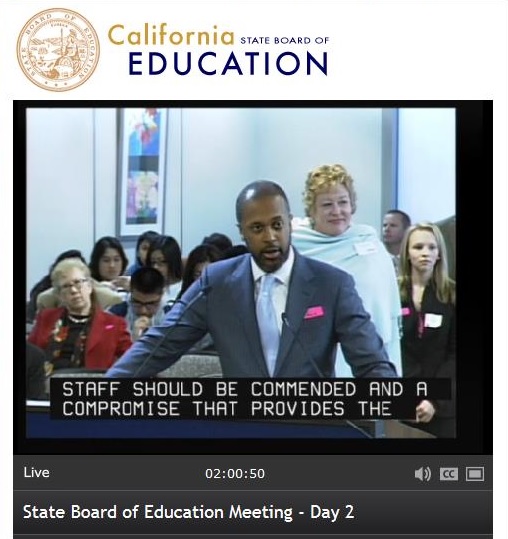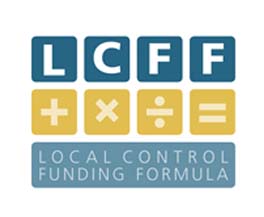by Chris Ungar Public schools are the most universal and intimate of our democratic institutions. A central role in this tradition is played by publicly elected school boards. Charged with the stewardship of their local districts, school boards provide the most direct (and often the […]
Category: Effective Governance
Effective Governance
Legislative Action Day 2016: 200 Education Advocates Rally at Capitol
CSBA President Chris Ungar shares the virtues of active engagement with local representatives in this 2016 Legislative Action Day video. “Remember the two A’s; advocacy and adequacy,” Ungar said. Watch this inspiring gathering of leaders fighting for public education and working on action for schools.
Call to Join the California Community Schools Network
by Deanna Niebuhr A few years ago, I worked with a team to write a Healthy Start grant proposal for an elementary school. The principal understood that this proposal writing process presented an opportunity to offer her students a valuable leadership experience. To give students […]
Smarter Balanced Assessments: Keep results in perspective for students and their families
by Kathy Caric With the release of California’s new Common Core-aligned test results for students from the third through the eighth grades, and 11th graders, the following is a perspective from the front lines. The commentary originally appeared as a From the Field piece in […]
Leadership Matters in the Reserve Cap Policy Debate
by School Services of California, Inc. staff We have written quite a number of negative articles outlining the potentially disastrous financial effects of the reserve cap policy contained in Senate Bill 858 enacted in June 2014. We think that the education community is well informed […]
Minding the DROPS: Water conservation projects teach awareness at schools
by Renee Cashmere As a first and second grader in the Bay Area in 1976-77, an epic drought made impressions upon me that have lasted a lifetime. Even before the more recent drought began, I remembered the conservation rules all Californian’s were required to follow back then. […]
What can principals do to make parents feel more welcome at their child’s school?
The Local Control and Accountability Plan is an exciting new development for local control and what we all hope will be equity. For the equity piece to work as planned, parents must step up to make their voices heard. This is also a time when we must ask, how can school leadership empower parent voices?
State Board adopts LCFF and LCAP regs, initiates permanent process
One hundred and sixty governance teams from across the state converged in Sacramento Jan. 16 to tell their stories and comment on the Local Control and Accountability Plan template and Local Control Funding Formula regulations.
Students display their power—and prowess—at the State Board’s November meeting
Several dozen students traveled to Sacramento with the California Association of Student Councils (CASC) to spend a few days researching and debating education policy and eventually designing policy recommendations to be presented to the SBE. Not only did the presenters have an impressive grasp of the latest academic research, they skillfully spun the research into actionable proposals that could work in the real world.
How can California schools reconcile 3 accountability systems?
As the Local Control Funding Formula and its Local Control and Accountability Plan are added to existing accountability measures under No Child Left Behind and the Common Core State Standards, education policymakers are talking about how local educational agencies can coordinate the three accountability systems. At a recent seminar hosted by Policy Analysis for Education, CSBA Assistant Executive Director for Policy and Programs Angelo Williams, Ed.D., joined several state-level education policymakers to discuss the different approaches to accountability and offer their best suggestions for going forward.





